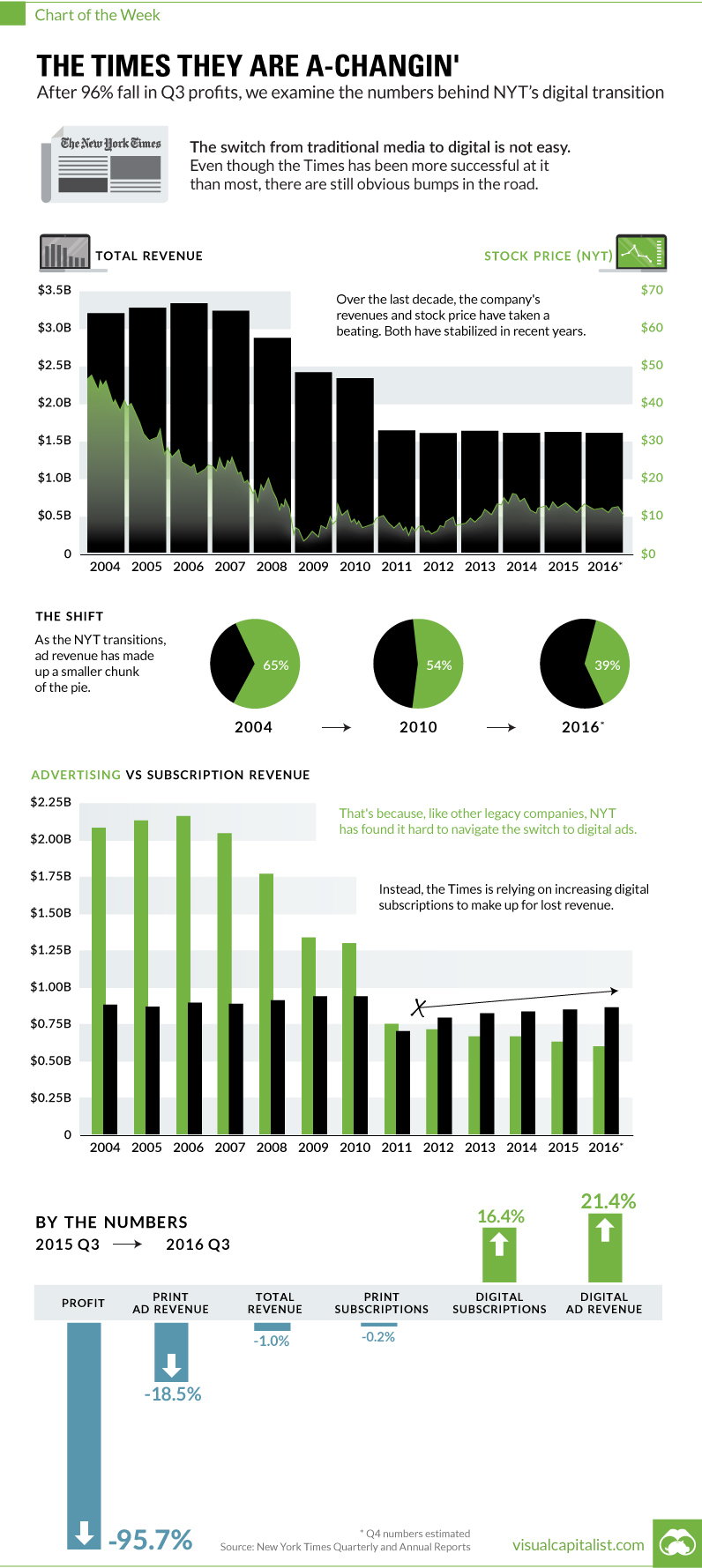The Reuters Institute for the Study Of Journalism (part of the European Journalism Observatory) looks at implications from the global move to the political right (Trump, France, Germany), new communication channels, the decline in influence and money among traditional media companies, and the rise of machines themselves as gatekeepers of information.
Publishers see the rise of fake news as a chance for quality journalism to stand out, even as they
worry about the increasing power of big tech platforms, and about their own commercial prospects.
Going into 2017, they also see opportunities in video, chat bots and voice-activated assistants,
according to a new survey of almost 150 CEOs, Editors and digital leaders from 24 different
countries. The survey is part of the Reuters Institute’s annual predictions report, launched today
Over two-thirds (70%) of respondents to the survey say they think their position will be
strengthened by recent controversies over fake news. Publishers hope that high quality reliable
news will be more needed than ever in a world awash with misinformation, but some fear that the
public’s trust in media could cause people to turn away from news altogether.
Top line summary highlights:
* A raft of initiatives over so called ‘fake news’ from both publishers and platforms fail to restore public trust. Fact-checking services move centre stage.
* We’ll see further job cuts and losses across the news industry. More papers in the US and Europe go out of business, slim down or become online-only.
* More focus on algorithmic accountability, the use of data for targeting, and the power of technology companies.
* We’ll see a backlash from publishers over Facebook Live as initial investments prove hard to sustain and monetise.
* Publishers force more people to sign-in/register for websites and apps as well as investing heavily in data to help deliver more personalised content and messaging.
* Expect widespread innovation with messaging apps, chat bots and the art of ‘conversational journalism’.
* More of us will be talking to computers via voice driven personal assistants, like Amazon’s Alexa, Apple’s Siri and Google’s Assistant.
* Big year for audio/podcasts as Facebook rolls out social and live audio formats.
* There’ll be an explosion of mobile alerts for news, as the battle for the lockscreen heats up.
* We’ll see more experimentation with Virtual Reality (VR) and Augmented Reality (AR), but results continue to disappoint for news.
* Cyber-wars intensify along with the battles between governments and citizens over the limits of personal surveillance.
* More politicians follow the lead of Donald Trump in using social media to define issues, break new policy and as a substitute for traditional media access.
Full Article: http://reutersinstitute.politics.ox.ac.uk/publication/journalism-media-and-technology-trends-and-predictions-2017
Download (PDF): Press release – Journalism, Media and Technology Predictions 2017_0
Download (PDF): Journalism, Media and Technology Trends and Predictions 2017

